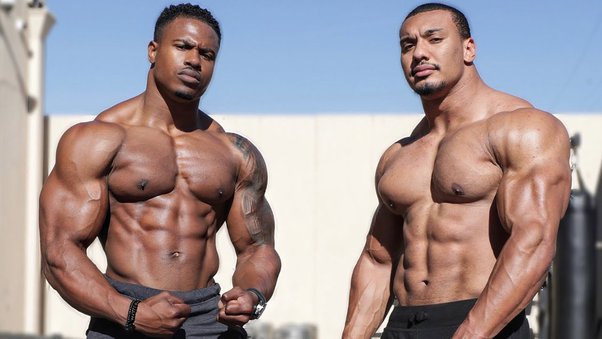- Empty cart.
- Continue Shopping
The Science Behind Muscle Growth

Muscle growth, scientifically referred to as muscle hypertrophy, is a fascinating and intricate process that occurs when the body adapts to specific stimuli, such as resistance training. Understanding the science behind muscle growth is not only crucial for athletes and bodybuilders but also for anyone interested in optimizing their physical fitness.
The Basics of Muscle Structure
To grasp the science of muscle growth, it’s essential to have a basic understanding of muscle anatomy. Muscles are composed of muscle fibers, which are long, cylindrical cells. Each muscle fiber contains myofibrils, which are the contractile units responsible for muscle contractions. When muscle fibers contract, they generate force, allowing us to move and perform physical activities.
Mechanisms of Muscle Growth
Muscle growth is not a singular event but rather a result of various intricate processes. The primary mechanisms that drive muscle hypertrophy are:
1. Muscle Fiber Recruitment
During resistance training, the body recruits different types of muscle fibers to generate the necessary force. There are two main types of muscle fibers:
- Type I fibers (slow-twitch): These fibers are responsible for endurance and are activated during low-intensity activities.
- Type II fibers (fast-twitch): These fibers generate high force and are engaged during high-intensity activities.
Effective muscle growth involves recruiting and stimulating Type II muscle fibers, which have the most significant growth potential.
2. Muscle Fiber Damage
Engaging in resistance exercises, especially those that involve heavy weights or resistance bands, causes microscopic damage to muscle fibers. These tiny tears in muscle fibers are a natural part of the muscle-building process. In response to this damage, the body initiates a repair and recovery process.
3. Protein Synthesis
The repair and growth of muscle fibers occur primarily through a process called protein synthesis. Protein synthesis involves the creation of new muscle proteins to replace damaged ones. It is influenced by various factors, including hormones and nutrition.
4. Hormonal Factors
Several hormones play critical roles in muscle growth:
- Testosterone: This hormone, predominantly found in males (though females have it in smaller amounts), is a potent stimulator of muscle growth.
- Growth Hormone (GH): GH promotes protein synthesis and the growth of muscle tissues.
- Insulin: Insulin regulates blood sugar levels and plays a role in muscle protein synthesis.
Factors Influencing Muscle Growth
Numerous factors influence the rate and extent of muscle growth:
1. Genetics
Genetics play a significant role in determining an individual’s potential for muscle growth. Some people may naturally have a higher capacity to build muscle than others.
2. Nutrition
Proper nutrition is fundamental for muscle growth. Consuming an adequate amount of macronutrients, such as protein, carbohydrates, and fats, as well as micronutrients like vitamins and minerals, provides the essential building blocks and energy required for muscle repair and growth.
3. Resistance Training
Engaging in resistance training exercises, such as weightlifting, resistance band workouts, or bodyweight exercises, is the primary stimulus for muscle growth. The intensity, volume, and frequency of these workouts significantly impact muscle hypertrophy.
4. Rest and Recovery
Muscles require sufficient rest and recovery to grow. Overtraining or inadequate rest can lead to muscle breakdown instead of growth. Sleep, rest days between workouts, and proper recovery strategies are vital components of muscle growth.
Nutrition Strategies for Muscle Growth
To optimize muscle growth, consider the following nutritional strategies:
- Adequate Protein Intake: Aim to consume an adequate amount of protein (typically around 1.2 to 2.2 grams of protein per kilogram of body weight) to provide amino acids for muscle repair and growth.
- Balanced Diet: Ensure you have a well-balanced diet that includes carbohydrates for energy and fats for overall health and hormone regulation.
- Hydration: Proper hydration is essential for muscle function and recovery.
In Conclusion, Muscle growth is a complex and dynamic process involving the recruitment of muscle fibers, damage and repair of muscle fibers, protein synthesis, and hormonal regulation. Understanding these mechanisms and factors can help individuals tailor their workout routines and nutrition plans for effective muscle growth. Keep in mind that muscle growth is a gradual process that requires consistency, dedication, and patience. Whether you’re an athlete or someone looking to improve their physical fitness, harnessing the science of muscle growth can lead to enhanced strength, functionality, and overall well-being.








